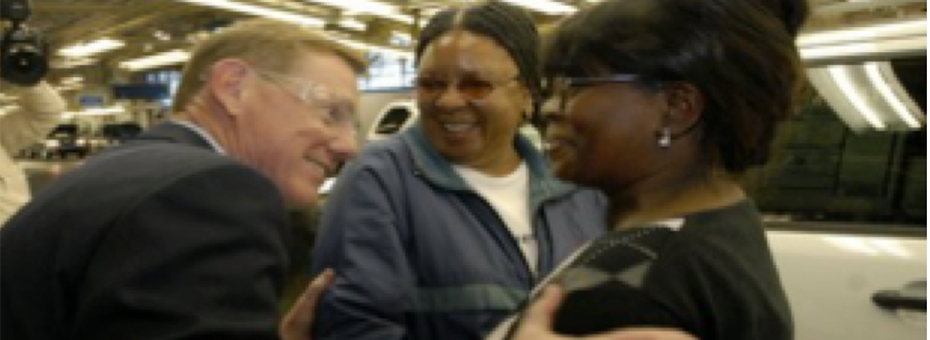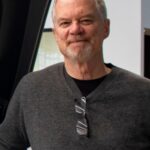“It seemed nothing short of a miracle could save Ford Motor Company in the mid 2000s. Ford didn’t receive a miracle, but it did get something just as valuable: Alan Mulally.” (Daniel Miller, The Motley Fool, May 2015)
I was starting to think that I had made a huge mistake. I had been at Ford for a little more than a year and while my work with Mazda and others in creating a new global development process was both rewarding and exciting, I knew there was so much more to do, and the toxic culture I was experiencing in my new role as an engineering director made me doubt that we could ever get there. My friends and colleagues from the lean community outside of Ford reinforced this view based on their previous work with the company. “Hopeless” was a term I heard most often and the numbers seemed to support their view. (The company was about to lose $17B.) Ford had just hired some “airplane guy” as CEO but I figured that just meant additional rounds of cost cutting. In any case, whatever he did would likely be too little too late. But I had made a commitment and I resolved to do my best and see it through.
And that’s when I saw it. Buried in my daily stack of mail was a hand written note from the new President and CEO, Alan Mulally (AKA “airplane guy”) asking me if I could find time to stop by his office to talk. I would find out later that this invitation was due to an email Jim Womack had sent Alan and part of Alan’s effort to deeply understand the current state at Ford. But I knew none of that at the time and was fairly suspicious of the note. Perhaps the cost cutting was about to start. Instead, that meeting led to a life changing adventure and a treasured mentor and friend who I continue to learn from to this day. But more relevant to this podcast, it was my introduction to the guy who would lead one of the most dramatic turnarounds in recent business history.
Alan Mulally is a brilliant engineer who was a major part of creating nearly every airplane in Boeing’s fleet. He led the total development of the game changing 777 airplane and then went on to lead historic transformations as CEO of Boeing Commercial and then Ford Motor Company. But just as important as what he accomplished, is how he accomplished it. His people first, inclusive approach to leadership not only created great products and successful companies, but also created an organization people (from the plant floor to senior leaders to UAW Leadership) wanted to be a part of.
In this podcast, Alan shares:
- His view on the CEO’s role in a successful transformation.
- What “people first” leadership means to him and how his basic values and love for people guide his decision making
- What he learned about innovation and customer focus from his lawn mowing business.
- How his early experiences with Lean and Toyota shaped his views on leadership and the importance of an effective management system.
- How he has continuously improved and evolved his management system over forty years starting with aircraft development, to the transformation of global organizations and how it influences his work with Google, The Mayo Clinic and Carbon 3D today.
The Working Together Management System
- Alan takes the time to share the key attributes of his management system, including its basic principles of inclusion, transparency, accountability, be data driven, and have fun – but never at anyone else’s expense.
- He also describes its three foundational elements: compelling vision, aligned plan, and relentless execution through an effective operating system.
- He explains how “trusting the process” builds successful and sustainable organizations where people really want to work and creates accountability without all the energy sapping drama.
- How it minimizes firefighting, enabling you to create products with speed, precision, and quality that your customers actually love.
Throughout our conversation, he shared stories from the products he developed and transformations he led. Providing valuable insight for leaders like you who are trying to navigate today’s disruptive and turbulent environment.




